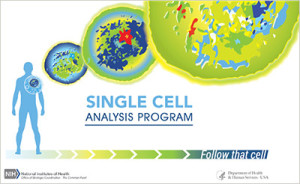
The National Institutes of Health is challenging science innovators to compete for prizes totaling up to $500,000, by developing new ways to track the health status of a single cell in complex tissue over time.
The National Institutes of Health (NIH) recently announced an exciting new challenge through the InnoCentive Platform that will award a total of $500,000 to creative minds that are interested in solving some of the world’s most important problems.
The Single Cell Analysis Program (SCAP) Challenge is aimed to spur the development of innovative solutions in single cell analysis. Through advances in cellular analysis, NIH hopes to develop tools that would monitor a cell in the process of becoming cancerous, detect changes due to disease-causing virus, or track how a cell responds to treatment.
The challenge’s goal is to generate creative ideas and methods for following and predicting a single cell’s behavior – in essence, allowing one to “Follow that Cell.”
This from the National Institutes of Health:
Many biological experiments are performed under the assumption that all cells of a particular “type” are identical. However, recent data suggest that individual cells within a single population may differ quite significantly and these differences can drive the health and function of the entire cell population. Single cell analysis comprises a broad field that covers advanced optical, electrochemical, mass spectrometry instrumentation, and sensor technology, as well as separation and sequencing techniques.

